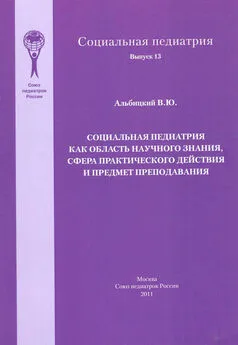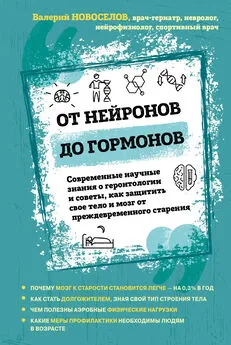Нико Штер - Власть научного знания
- Название:Власть научного знания
- Автор:
- Жанр:
- Издательство:Алетейя
- Год:2015
- Город:Санкт-Петербург
- ISBN:978-5-9905769-3-3
- Рейтинг:
- Избранное:Добавить в избранное
-
Отзывы:
-
Ваша оценка:
Нико Штер - Власть научного знания краткое содержание
В центре внимания социологов Нико Штера и Райнера Грундманна – вопрос о том, при каких условиях научное знание влияет на практическую политику и как именно организовано это влияние.
В поисках ответа авторы книги анализируют три кейса – экономическую теорию и политику Кейнса, науку о расах и ее роль в трагедии холокоста, а также исследования в области климатологии, их восприятие в обществе и их последствия.
Власть научного знания - читать онлайн бесплатно ознакомительный отрывок
Интервал:
Закладка:
Guala, Alan. 2001. “Building Economic Machines: tte FCC Auctions”, in: Studies in History and Philosophy of Science 32. P. 453–477.
Günther, Hans F. K. [1925] 1929. The Racial Element of European History. London.
Gusfield, Joseph R. 1975. “tte (F)utility of Knowledge? The Relation of Social Science to Public Policy toward Drugs”, in: The Annals of the American Academy of Political and Social Science 417. P. 1–15.
Haas, Peter M. 1992. “Introduction: Epistemic Communities and International Policy Coordination”, in: International Organization 46. P. 1–35.
Haas, Peter M. 2004. “When Does Power Listen to Truth? A Constructivist Approach to the Policy Process”, in: Journal of European Public Policy 11 (4). P. 569–592.
Haas, Peter M. 1993. „Stratospheric Ozone: Regime Formation in Stages“, in: Young, Oran R., and Osherenko, Gail (Eds.) Polar Politics. CreatingIntrenational Environmental Regimes. Ithaka, New York. P. 152185.
Habermas, Jürgen. 1964. „Dogmatismus, Vernunft und Entscheidung – Zur 'tteorie und Praxis in der wissenschaftlichen Zivilisation“, in: Jürgen Habermas. Theorie und Praxis. Neuwied: Luchterhand. S. 231–257.
Habermas, Jürgen. 1969. Wissenschaft und Technik als Ideologie. Frankfurt/M.
Hacking, Ian. 2005. “Why Race still Matters”, in: Daedalus 134. P. 102–116.
Hagstrom, Warren O. 1965. The Scientific Community. New York: Basic Books.
Hajer, Maarten A. 1995. The Politics of Environmental Discourse: Ecological Modernisation and the Policy Process. Oxford: Oxford University Press.
Hall, Rupert A. 1963. “Merton Revisited or Science and Society in the Seventeenth Century”, in: History of Science 2. P. 1–16.
Hall, Peter A. (Ed.) 1989a. The Political Power of Economic Ideas: Keynesianism Across Nations. Princeton, New Jersey: Princeton University Press.
Hall, Peter A. 1989b. “Introduction”, in: Peter A. Hall (Ed.) The Political Power of Economic Ideas. P. 3–26.
Hammond, Kenneth et al. 1983. “Fundamental Obstacles to the Use of Scientific Information in Public Policy Making”, in: Technological Forecasting and Social Change 24. P. 187–297.
Hankins, Frank Hamilton. 1926. The Racial Basis of Civilization. A Critique of the Nordic Dotrine. New York.
Hansen, Alvin H. 1952. A Guide to Keynes. New York: McGraw-Hill.
Hardin, Garrett. 1974. “Living on a Lifeboat”, in: Bioscience 24 (10). P. 561–568.
Harich, Wolfgang. 1975. Kommunismus ohne Wachstum? Babeuf und der ‘Club of Rome’ Sechs Interviews mit Freimut Duve und Briefe an ihn. Reinbek bei Hamburg: Rowohlt.
Harris, Jose. 1990. „Economic Knowledge and British Social Policy“, in: Furner, Mary O., and Supple, Barry (Eds.) The State and Economic Knowledge. The American and British Experiences. Cambridge. P. 379–400.
Harrison N. E. 2000. “From the Inside Out. Domestic Influences on Global Environmental Policy”, in: Harris P.G. (Ed.) Climate Change and American Foreign Policy. New York. P. 89–109.
Harrod, Roy F. 1951. The Life of John Maynard Keynes. New York: Harcourt, Brace.
Hart, David M., and David G. Victor. 1993. “Scientific Elites and the Making of US Policy for Climate Change Research, 1957-74”, in: Social Studies of Science 23 (4). P. 643–680.
Harwood, Jonathan. 1976. „He Race-Intelligence Controversy. A Sociological Approach I: Professional Factors“, in: Social Studies of Science 6. P. 369–394.
Harwood, Jonathan. 1977. „He Race-Intelligence Controversy: A Sociological Approach II: External Factors“, in: Social Studies of Science 7. P. 1–30.
Haupt, Joachim. 1933. „Freie Forschung im Dritten Reich?“, in: Volk im Werden 1 (2). P. 1–2.
Havelock, Ronald G., and Benne, Kenneth D. [1966] 1969. “An Esploratory Study of Knowledge Unitization”, in: Bennis, Warren B., and Benne, Kenneth D., and Chin, Robert (Eds.) The Planning of Change. New York. P. 151–164.
Hayek, Friedrich A. [1974] 1975a. “He Pretence of Knowledge (Nobel Lecture)”, in: Hayerk, Friedrich. Full employment at Any Price? London.
Hayek, Friedrich A. [1974] 1975b. “Inflation, the Misdirection of Labour and Unemployment”, in: Hayerk, Friedrich. Full employment at Any Price ? London. P. 15–29; 30–42.
Hayek, Friedrich A. [1945] 1969. “tte Use of Knowledge in Society”, in: Hayek, Friedrich A. Individualism and Economic Order. Chicago. P. 77–91.
Hayek, Friedrich A. 1967. Studies in Philosophy, Politics and Economics. Chicago.
Hayek, Friedrich A. 1959. Missbrauch und Verfall der Vernunft. Ein Fragment. Frankfurt/M.
Hayek, Friedrich A. 1952. The Counter-Revolution of Science: Studies on the Abuse of Reason. Glencoe, Ill: Free Press.
Heclo, Hugh. 1978. “Issue Networks and the Executive Establishments”, in: Anthony D. King (Ed.) The New American Political System. Washington: American Enterprise Institute. P. 87–124.
Hellpach, Willy H. [1911] 1939. Geopsyche. Die Menschenseele unterm Einfluß von Wetter und Klima, Boden und Landschaft. Leipzig.
Hellpach, Willy H. 1938. „Kultur und Klima“, in: Wolterek, Heinz (Hg.) Klima-Wetter-Mensch. Leipzig. S. 417–438.
Helmer, Olaf [1966] 1970. “Sozialtechnik”, in: Koch, Claus, und Senghaas, Dieter (Hg.) Texte zur Technokratiediskussion. Frankfurt/M. S. 293–329.
Henderson, Charles Richmond. 1912. “Applied Sociology (or Social Technology)”, in: American Journal of Sociology 18. P. 215–221.
Hernes, Gudmund. 2008. “tte Interface Between Social Research and Policy Making”, in: European Sociological Review 24. P. 257–265.
Herrnstein, Richard J., and Murray Charles. 1994. The Bell Curve. Intelligence and Class Structure in American Life. New York.
Hicks, John R. 1937. “Mr. Keynes and the Classics: A Suggested Interpretation”, in: Econometrica 5. P. 147–159.
Hicks, John R. 1974. The Crisis of Keynesian Economics. Oxford: Basil Blackwell.
Hicks, John R. 1985. “Keynes and the World Economy”, in: Fausto Vi-carelli (Ed.) Keynes’s Relevance Today. London: Macmillan. P. 21–27.
Hirschman, Albert O. 1989. “How Keynes Was Spread from America”, in: States and Social Structures Newsletter 10. P. 1–15.
Hirst, Paul, and Grahame Thompson. 1992. “The Problem of ‘Globalization’: International Economic Relations, National Economic
Management and the Formation of Trading Blocs”, in: Economy and Society 21. P. 357–396.
Hoffmann, Stanley. 1975. “Notes on the Elusiveness of Modern Power”, in: International Journal 30. P. 183–206.
Homans, Peter. 1989. The Ability to Mourn. Disillusionment and the Social Origins of Psychoanalysis. Chicago.
Honigsheim, Paul. 1926. “Der Max-Weber-Kreis in Heidelberg”, in: Kölner Vierteljahrshefte für Soziologie 5. S. 270–287.
Honneth, Axel. 1998. “Democracy as Reflexive Cooperation. John Dewey and the Theory of Democracy Today”, in: Political Theory 26. P. 763–783.
Hoos, Ida R. 1969. Systemes Analysis in Social Policy. London.
Horkheimer, Max [1932] 1972. “Notes on Science and the Crisis”, in: Max Horkheimer. Critical Theory: Selected Essays. New York: Continuum.
Horowitz, Irving L. 1980. Taking Lives. Genocide and State Power. New Brunswick, New Jersey.
Horowitz, Irving L. (Ed.) The Use and Abuse of Social Science. New Brunswick, New Jersey.
Horowitz, IrvingL. 1970. “Social Science Mandarins: Policymaking as a Political Formula”, in: Policy Sciences 1. P. 339–360.
Horowitz, IrvingL. 1965. “tte Life and Death of Project Camelot”, in: Transaction 3. P. 44–47.
Hotz-Hart, Beat. 1983. „Regierbarkeit im wirtschaftlichen Strukturwandel. Der welrwirtschaftliche Umbruch als Herausforderung wirschaftsplitischer Institutionen“, in: Schweizerisches Jahrbuch für politische Wissenschaft 23. S. 293–314.
Howard, Ronald L. 1981. A Social History of American Family Sociology: 1865–1940. Westport, Connecticut.
Hulme, Mike. 2009. Why We Disagree About Climate Change . Cambridge: Cambridge University Press.
Hulme, Mike. 2010. “Moving beyond climate change”, in: Environment 52 (3). P. 15–19.
Hunt, Morton. 1985. Profiles of Social Research. The Scientific Study of Human Interactions. New York.
Huntington, Ellsworth. 1945. Mainsprings of Civilization. New York.
Huntington, Ellsworth. 1935. Tomorrow’s Children. The Goal of Eugenics. New York.
Huntington, Ellsworth. 1927. The Human Habitat. New York.
Huntington, Ellsworth. 1926. The Pale of Progress. New York.
Huntington, Ellsworth. 1924. The Character of Races as Influenced by Physical Environment, Natural Selection and Historical Development. New York.
Huntington, Ellsworth. [1915] 1924. Civilization and Climate. New York.
Huntington, Ellsworth. 1907. The Pulse of Asia. Boston.
Ibarra, Andoni, and Mormann Thomas. 2003. “Engaged Scientific Inquiry in the Vienna Circle. tte Case of Otto Neurath”, in: Technology in Society 25. P. 235–247.
Inciardi, James A. 1987. “Sociology and American Drug Policy”, in: American Sociologist 18. P. 179–188.
IPCC. 2001. Third Assessment Report. Genf. http://www.ipcc.ch/ipc-creports/tar/wgI/070.htm.
IPCC. 2000. Emission Scenarios. Genf. http://www.ipcc.ch/ipccre-ports/sres/emission/index.php?idp=2.
Irwin, Alan, and Wynne, Brian (Eds.) 1996. Misunderstanding Science? The Public Reconstruction of Science and Technology. Cambridge.
Jacobsen, John Kurt. 1995. “Much Ado about Ideas: tte Cognitive Factor in Economic Policy”, in: World Politics 47. P. 283–310.
Jaensch, Ehrich. 1927. Der nordische Gedanke unter den Deutschen. München.
Jaensch, Ehrich. 1930. Rassenkunde des Jüdischen Volkes. München.
James, Harold. 1989. “What is Keynesian about Deficit Financing? üe Case of Interwar Germany”, in: Peter A. Hall (Ed.) The Political Power of Economic Ideas. P. 231–261.
Jänicke, Martin. 1986. Staatsversagen. Die Ohnmacht der Politik in der Industriegesellschaft. München.
Janowitz, Morris. 1971. Sociological Models and Social Policy. Morristown, New Jersey.
Janowitz, Morris. 1972. “Profesisonalization of Sociology”, in: American Journal of Sociology 78. P. 105–135.
Janowitz, Morris. 1978. The Last Half-Century. Societal Change and Politics in America . Chicago.
Jasanoff, Sheila. 1990. The Fifth Branch: Science Advisers as Policymakers. Cambridge, MA: Harvard University Press.
Читать дальшеИнтервал:
Закладка:










